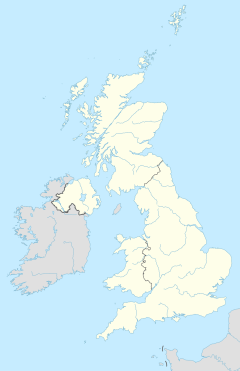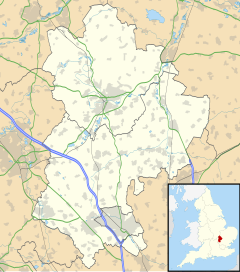
Back Beadanford ANG بيدفورد Arabic Bedford AST بدفورد، اینگیلیس AZB Бедфард Byelorussian Бэдфард BE-X-OLD Bedford Catalan Bedford (kapital sa kondado sa Hiniusang Gingharian, Inglatera, Bedford) CEB Bedford Czech Bedford Welsh
| Bedford | |
|---|---|
| Town | |
 Clockwise from the top left: Bedford Castle Mound, Westbourne Road Mosque in the Queens Park area, Shire Hall, Bedford Town Bridge, Priory Lake, St Paul's Church and Britannia Iron Works former entrance | |
| Population | 106,940 (2011 built-up area including Biddenham and Kempston)[1] |
| OS grid reference | TL055495 |
| • London | 46 miles (74 km) S |
| Unitary authority | |
| Ceremonial county | |
| Region | |
| Country | England |
| Sovereign state | United Kingdom |
| Post town | Bedford |
| Postcode district | MK40–MK45 |
| Dialling code | 01234 |
| Police | Bedfordshire |
| Fire | Bedfordshire and Luton |
| Ambulance | East of England |
| UK Parliament | |
Bedford is a market town in Bedfordshire, England. At the 2011 Census, the population of its urban area (as defined by the Office for National Statistics), including Kempston and Biddenham, was 106,940. Bedford is also the county town of Bedfordshire and seat of the Borough of Bedford, a unitary authority area that includes a significant rural area.
Bedford was founded at a ford on the River Great Ouse and is thought to have been the burial place of King Offa of Mercia, who is remembered for building Offa's Dyke on the Welsh border. Bedford Castle was built by Henry I, although it was destroyed in 1224. Bedford was granted borough status in 1166 and has been represented in Parliament since 1265. It is known for its large population of Italian descent.[2]
- ^ Cite error: The named reference
BUAwas invoked but never defined (see the help page). - ^ The Guardian (23 January 2006). "Italians in Bedford". TheGuardian.com.


